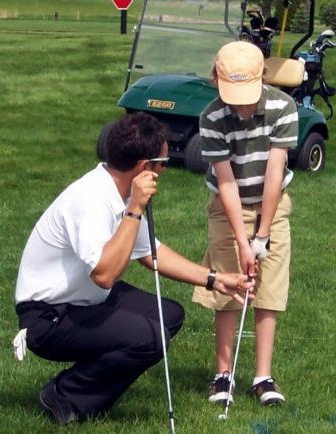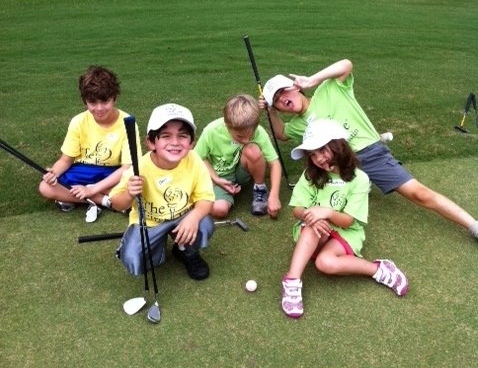As anyone who’s ever played a sport will tell you, it’s not just a game.
There’s something that happens to an athlete while waiting for the next pitch or setting up that first tee shot or passing the basketball to a teammate running down the court.
These moments will replay themselves again and again as young people enter adulthood — in job interviews, tests and life with roommates.
The skills young people learn on the athletics field can also help them cope with disappointment and defeat. Their coach’s voice will still echo in their mind: “Don’t give up. Keep practicing. You’ll get there.”
Those involved in helping kids nurture life skills and values on the sports field know that organized recreational activities are not a luxury. They are an essential component in developing strong bodies and minds in young people.
Out-of-school programs, including recreational activities, have been shown to improve students’ academic skills and self-confidence and reduce drug use and juvenile crime. And such programs can dramatically transform lives. Through participation in Special Olympics Texas, for example, athletes build the kind of confidence and self-esteem that help them find jobs and achieve greater independence.
And while some 30 million youth participate in organized sports each year, according to the Centers for Disease Control and Prevention, far too many are missing out. The Central Texas Afterschool Network conducted a survey among low-income Central Texans showing only 22 percent of students attended an after-school program for 30 days or more during the 2010-2011 school year. A more troubling way to read that statistic: 78 percent did not participate.
To maximize the benefits of recreational programs, though, leaders of Texas sports organizations say families and the community at large must play a major role. Volunteers can make an enormous different by doing something as basic as providing transportation to the ball field or as complex as mentoring aspiring athletes and helping a kid learn to hit a curveball. Because it will never be just a curveball.
![]()
 The First Tee of Greater Austin teaches putting and persistence
The First Tee of Greater Austin teaches putting and persistence
You can lecture youth about healthy habits and values, but the folks at The First Tee of Greater Austin know a more effective strategy: Get kids outdoors, give them some golf clubs and let them learn life lessons while they play.
 Through a structured curriculum, The First Tee not only teaches children how to putt and drive, it instills in them the importance of developing healthy physical, social and emotional habits. To advance to the next level, players must both pass a golf test and represent The First Tee’s Nine Healthy Habits and Nine Core Values, which include honesty, integrity and sportsmanship.
Through a structured curriculum, The First Tee not only teaches children how to putt and drive, it instills in them the importance of developing healthy physical, social and emotional habits. To advance to the next level, players must both pass a golf test and represent The First Tee’s Nine Healthy Habits and Nine Core Values, which include honesty, integrity and sportsmanship.
“The Life Skills are taught seamlessly,” says Jennifer MacCurrach, Executive Director of The First Tee. “It’s more doing versus telling.”
Part of a national organization, the Austin chapter of The First Tee started in 1999, offering in-school and after-school programs and summer camps for kids ages 5 to 17. The nonprofit served 4,000 Austin-area students in 2011 and will reach 5,000 students in 2012 at various Austin golf facilities and school day physical education programs at area schools.
 Because it doesn’t require great speed or strength, MacCurrach says, golf is a very inclusive sport. And The First Tee stresses the process rather than the outcome. Players compete against themselves, not each other. They face the consequences of their own choices, MacCurrach says, such as staying up late playing video games or skipping breakfast.
Because it doesn’t require great speed or strength, MacCurrach says, golf is a very inclusive sport. And The First Tee stresses the process rather than the outcome. Players compete against themselves, not each other. They face the consequences of their own choices, MacCurrach says, such as staying up late playing video games or skipping breakfast.
Failure offers a life lesson that will apply to nearly every endeavor a player will face in the future: make adjustments, keep practicing, try again.
“They’ve never plodded their way through something the way they have to do on a golf course,” MacCurrach says. “They learn quickly it’s just them, and they’ve got to figure it out.”
 When they do, she adds, it’s inspiring for everyone involved.
When they do, she adds, it’s inspiring for everyone involved.
And while golf celebrates individualism and self-reliance, MacCurrach says she’s seen firsthand the importance of teamwork beyond the golf course. green. Players, she says, will more likely maintain The First Tee’s life skills and values if they receive a consistent message.
“I’m a firm believer that in order for our program to be impactful,” she says, “reinforcement needs to come from school, needs to come from home, needs to come from the community.”
Learn More about The First Tee
![]()
 Special Olympics Texas gives athletes a can-do attitude
Special Olympics Texas gives athletes a can-do attitude
The phrase “life changing” comes up a lot at Special Olympics Texas. For the athletes, volunteers, staff members and others who participate in the organization, there’s something transformative that happens on the courts and ball fields around Texas.
Consider this example: A man in his late 30s was nonverbal when he began participating in Special Olympics Texas three years ago. He tried basketball. Then track and field. And bocce and bowling. He now greets people, is gaining more independence, and even has a girlfriend.
 Suzanne Anderson, Vice President of Field Services, says the organization, which begins working with children as young as 2 and has no upper age limits, helps intellectually disabled and developmentally delayed athletes build interpersonal skills needed for jobs and socializing. It empowers athletes, she says, by highlighting their abilities rather than their disabilities.
Suzanne Anderson, Vice President of Field Services, says the organization, which begins working with children as young as 2 and has no upper age limits, helps intellectually disabled and developmentally delayed athletes build interpersonal skills needed for jobs and socializing. It empowers athletes, she says, by highlighting their abilities rather than their disabilities.
And when it comes to learning, Anderson says, these athletes are no different from typically abled people.
“As human beings, we learn things, and we continue to apply them for the rest of our lives.”
 A 2004 study showed that 52 percent of Special Olympics athletes were employed (half of them in competitive jobs), a rate believed to be much higher than the general population of intellectually disabled adults.
A 2004 study showed that 52 percent of Special Olympics athletes were employed (half of them in competitive jobs), a rate believed to be much higher than the general population of intellectually disabled adults.
Anderson has witnessed athletes develop more independence and self-confidence, improve their vocational and life skills and, perhaps most importantly, find their voice. Athletes visit the U.S. Capitol annually to address their concerns with elected officials and were key in changing language used to describe them from mentally retarded to intellectually disabled.
 With some 44,000 Texas athletes engaged this year — and a goal of 60,000 by 2015 — Special Olympics Texas is constantly “knocking on doors” of schools, families, group homes and sheltered workplaces to invite more participants. The organization also encourages people of all abilities to volunteer, serve as mentors and, if they’re so inclined, to get out there and play.
With some 44,000 Texas athletes engaged this year — and a goal of 60,000 by 2015 — Special Olympics Texas is constantly “knocking on doors” of schools, families, group homes and sheltered workplaces to invite more participants. The organization also encourages people of all abilities to volunteer, serve as mentors and, if they’re so inclined, to get out there and play.
Many of the Special Olympics teams are unified, meaning typically developing athletes compete alongside those with disabilities.
“We’re a sports organization that has a social conscience,” Anderson says. “If you would like to be in involved with us, you can be involved with us.”












